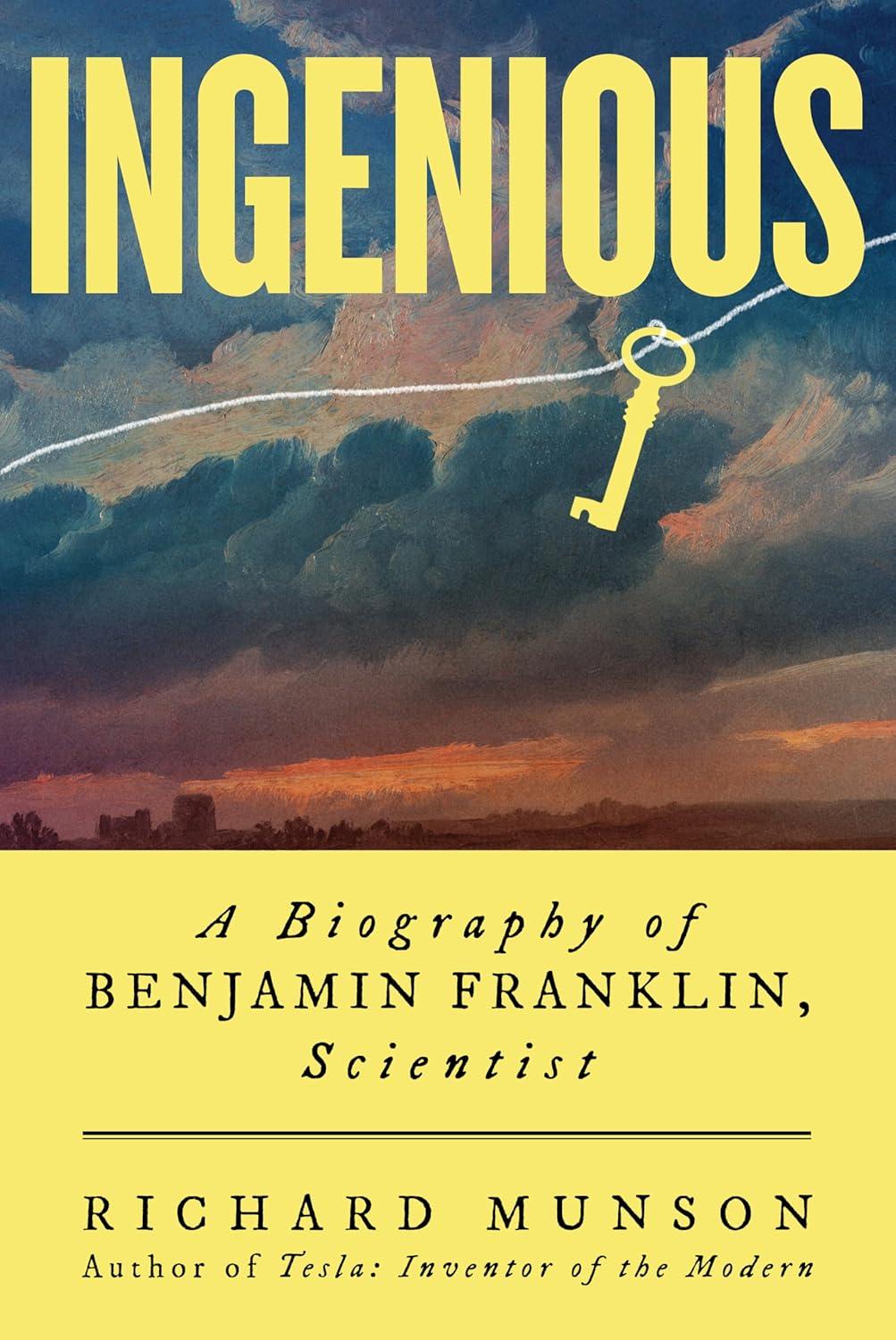When Franklin’s kite experiment is portrayed in popular culture, the enduring images often are fanciful, mischaracterize his contributions to science, and provoke misconceptions that surround Benjamin today. Perhaps the best-known representation came from Currier and Ives more than a century after the event in a hand-colored lithograph that depicts an old man comforting his frightened young son and holding a kite string in an open field as jagged flashes cross the sky. Yet as noted before, Franklin was vibrant; his son was a mature twenty-two-year-old; these careful scientists sheltered in a shed to avoid electric bolts; and no lightning ever appeared that afternoon, simply clouds holding electrostatic energy.
A Benjamin West painting of 1816 advances a more grandiose view of this moment in science: a purple-robed Franklin, surrounded by cherubs, reaches skyward to receive sparkling fire from the gods. Such renditions create crude caricatures that undermine our understanding of this complex individual. They also present competing, but inaccurate, legends—a foolish fanatic practically begging to be electrocuted versus a godlike creature capturing power from the heavens. Rather than illuminate Franklin’s thought processes or the science itself, the images offer a simplistic spectrum of scientist portrayals, from daydreamer to demigod, complete with scraggly hair.
Our modern narratives also don’t give Franklin his due. A 2022 Ken Burns documentary focused on his diplomacy and ownership of slaves, virtually ignoring his science. A Broadway musical from 1964 embellished tales of his Paris romances, prompting a journalist to label him “our founding flirt.” The crass commercialization of his image in advertisements for investment funds and foods threatens to render him an eccentric and comic character who elicits neither controversy nor adulation.
Benjamin deserves to be rescued from such trivializing images. I assert that we do not appreciate Franklin as well as we believe or as richly as he deserves. We need to recognize how experimentation and reason pervaded his entire life, as well as acknowledge that his scientific discoveries surpassed pragmatic inventions.
What if scientists—rather than historians or artists—crafted his biography? Noting his insights into energy, molecules, climate, and refrigeration, Joseph Priestley, who isolated oxygen in 1774, declared Franklin’s discoveries to be “the greatest, perhaps, that [have] been made in the whole compass of philosophy since the time of Sir Isaac Newton.” English physicist J. J. Thomson, the man credited with detecting the electron in 1897, said that what Franklin “rendered to the science of electricity…can hardly be overestimated.” Robert Millikan, who won the Nobel Prize for Physics in 1923, labeled Franklin’s research “probably the most fundamental thing ever done in the field of electricity.”
